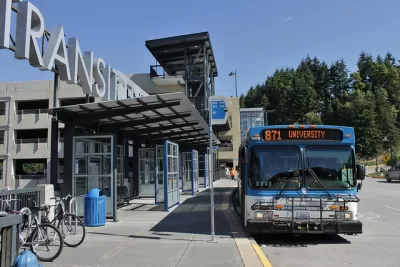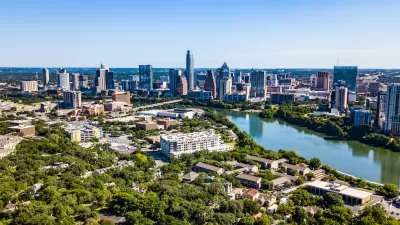The new "Solving the Climate Crisis" report could provide guidance and direction if federal leadership in Washington, D.C. finally decides to take aggressive steps to reduce carbon emissions and adapt to a changed climate.

The House Select Committee on the Climate Crisis released a new "Solving the Climate Crisis" report this week, calling specific attention to the ability of local planners to work for climate solutions, according to an article by APA Policy Director Jason Jordan.
"Over its more than 500 pages 'Solving the Climate Crisis' outlines big goals, economy-wide net zero carbon emissions by 2050, big aspirations, a new national commitment to a 'moonshot' approach to climate change, and granular policy detail covering a wide range of topics," according to Jordan.
"The recommendations are built around 12 'key pillars' with detailed legislative suggestions in each area. The pillars cover infrastructure, clean energy, zero-emission technology, workforce issues, environmental justice, public health, agriculture, resiliency, natural resources, national security and international leadership, and core institutions."
While the report has virtually nop hope of becoming law, according to Jordan, the report could influence climate legislation under a new administration in the Executive Branch or new leadership in Congress. The report also lays out specific steps for local planners to lead on climate action, and calls for a stronger federal role in supporting the work of planning on issues like "building codes, setting resiliency standards, overhauling flood mapping, providing better data to communities, funding mitigation, and bolstering local community engagement," according to Jordan. The call for a stronger role for planning expertise echoes similar sentiments in a recent article about the role of the planning profession during the pandemic.
FULL STORY: Congress Looks to Planning as a Climate Crisis Solution

Alabama: Trump Terminates Settlements for Black Communities Harmed By Raw Sewage
Trump deemed the landmark civil rights agreement “illegal DEI and environmental justice policy.”

Planetizen Federal Action Tracker
A weekly monitor of how Trump’s orders and actions are impacting planners and planning in America.

The 120 Year Old Tiny Home Villages That Sheltered San Francisco’s Earthquake Refugees
More than a century ago, San Francisco mobilized to house thousands of residents displaced by the 1906 earthquake. Could their strategy offer a model for the present?

Ken Jennings Launches Transit Web Series
The Jeopardy champ wants you to ride public transit.

BLM To Rescind Public Lands Rule
The change will downgrade conservation, once again putting federal land at risk for mining and other extractive uses.

Indy Neighborhood Group Builds Temporary Multi-Use Path
Community members, aided in part by funding from the city, repurposed a vehicle lane to create a protected bike and pedestrian path for the summer season.
Urban Design for Planners 1: Software Tools
This six-course series explores essential urban design concepts using open source software and equips planners with the tools they need to participate fully in the urban design process.
Planning for Universal Design
Learn the tools for implementing Universal Design in planning regulations.
Clanton & Associates, Inc.
Jessamine County Fiscal Court
Institute for Housing and Urban Development Studies (IHS)
City of Grandview
Harvard GSD Executive Education
Toledo-Lucas County Plan Commissions
Salt Lake City
NYU Wagner Graduate School of Public Service





























